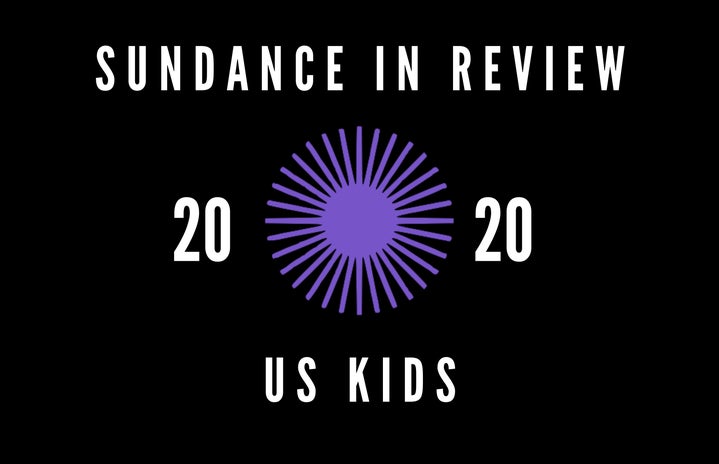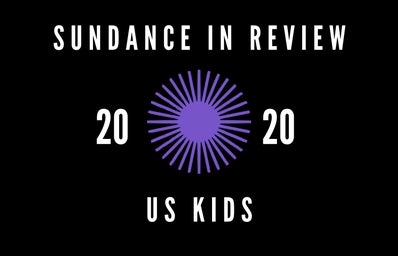Focusing on the months following the 2018 Valentine’s Day shooting, Us Kids follows and celebrates the teen survivors from Marjory Stoneman Douglas. Following her 2016 film centered around the 2012 mass shooting in Newton, Connecticut, director Kim A. Snyder continues to follow school shootings and explores the minds of the Parkland survivors, who begin a bus tour in hopes to change minds and votes in light of the 2018 midterm elections, alongside of the March for Our Lives Movement, instead of taking it easy over summer break.
Snyder says her motivation for the film came from feeling the nation “wasn’t really getting” the toll and effect gun violence has on people. “I started to think of a way to tell a story built on trauma, and start to chronicle this amazing story of activism unfolding.”
Best known from intense media coverage, Emma Gonzales and David Hogg are the faces of this movement. But the film gives insight to the teens not at the forefront of the media coverage. Samantha Fuentes, who was shot twice, and watched her friend Nick Dworet die, shares her personal struggles PTSD and reclaiming her life. Later, the team is joined by Bria Smith, who works to emphasize the African American youths that lose their lives everyday due to gun violence, not just the white kids who you see in the newspapers.
While bringing attention to the American gun crisis, the teens are continuously accused of being merely crisis actors, and have endless conspiracy theories circling around them that they are being manipulated and planted by anti-gun activists. The film not only displays the death-threats and fear imposed on the teens by counter protesters (Hogg in particular), but also the civil and productive dialogue the two sides are able to achieve together. “You’re not like they show you on TV,” a gun rights activist tells Hogg.
The film considers the emotional and psychological burdens than comes with not only surviving a massacre, but being thrown into a mass media frenzy, highlighting mental health among the teens, and their individual journeys to reclaim the power within themselves. Three of the teens featured in the film, Cameron Kasky, Julia Cordover, and Matt Deitschand, were present for the screening and participated in the Q&A. Snyder introduces them as the new role models of the generation as, “it’s no longer American Idols signing on stage. It’s cool to be these guys.”
Cordover told the audience in regards to mental health, “My activism was one of the best ways to cope; telling people my story, telling people what was going on in our community. I used my frustration and turned it into action.”
Kasky went on, “Man, I was messed up before people got killed. You know how the tag-line for Wicked is ‘a lot happened before Dorothy dropped in’? A lot happened for me before any of this stuff. I’ve got bipolar disorder, ADHD, a little Tourette’s -if anyone needs to borrow emotional issues, hit me up. But, talking about what you’re going through is so healing… If you’re able to take the things that can be stigmatized against you, realize how you overcome them when you wake up every day, turn them into a part of your character and part of something that makes you happy to be you, you’re going to feel a lot better.”
Deitschand chimes in, “A lot of people probably aren’t aware, but multiple people killed themselves after the Parkland shooting. We raised over ten million dollars for the Parkland Victims Fund and distributed it to people, but that wasn’t enough to actually help people and save lives…It’s important to create that space where we address that trauma and actually make empathy accessible for people.” Kasky adds that after the Newton shooting, there are almost as many who have taken their own life after the shooting as those who lost their lives that day, saying the massacres continue to claim victims “for decades.”
The Road to Change tour did see change: the midterm election’s young-voter turnout was impressively increased, and NRA-sponsored candidates began losing left and right. Highlighting getting former Utah Representative Mia Love “the fuck out of office.”
When questioned about how they’re going to keep the momentum of the movement growing, Deitschand, who Snyder refers to as “the mastermind of this whole thing” says strongly, “The momentum is about continuing the conversation every single day. When you come here and you learn something, it’s about continuing the conversation outside of this space…It’s why we’re here, why I’m in Utah right now: to get you guys off your asses. We started with 20 people on a living room floor and made history, imagine what you could do with your resources.”
There is no question, as we are waking up to more and more mass shootings as they days continue to go by, that there is still a vast amount of work to be done; Us Kids doesn’t provide us a solution, but hope.
Thoughts and prayers don’t stop bullets.
All images courtesy of The Sundance Institute.


